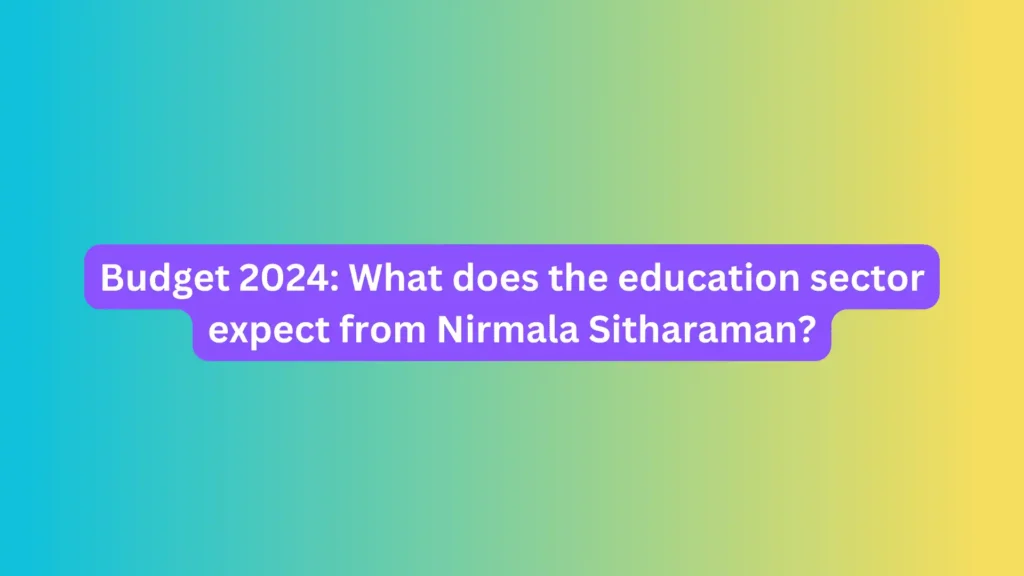Budget 2024: Ahead of the Union Budget 2024, reports suggest that the education industry is expecting a GST exemption on all educational expenses.

Industry stakeholders are focused on enhancing accessibility and affordability in education, offering a variety of programmes from test preparation courses to job-oriented skills training, particularly aimed at students from below the poverty line (BPL) and low income group (LIG) backgrounds, according to report by Financial Express.
The report quoted Prateek Maheshwari, co-founder of Physics Wallah and chair of the India EdTech Consortium (IEC), as saying, “The existing 18 per cent tax slab is disproportionately high for something as fundamental as education. Such financial relief would significantly reduce the net disposable income spent by these families on education, making quality education more accessible.”
According to experts, fostering collaborations between fintech firms and educational institutions is crucial for enhancing skill development. Additionally, aligning the education budget with economic demands can significantly boost the industry’s growth, the report said.The news report quoted Rohit Gajbhiye, chief executive and founder of LEO 1, as saying that it is important to enhance workforce skills in digital finance, provide tax incentives and subsidies to reduce operational expenses, and increase investment in research and development.The industry said that the government should play a proactive role in promoting the Public-Private Partnership approach in green skills development. This includes the establishment of Green Skill Academies in multiple states.
The news report quoted Manav Subodh, founder of 1M1B (One Million for One Billion) as saying, “This strategic initiative aims to equip one crore youth with green skills by 2025, seamlessly integrating these programmes with the Skill India Mission. By doing so, not only will it create a multitude of jobs within the rapidly expanding green economy, but it will also significantly contribute to India’s climate commitments.”
Subodh emphasised the importance of earmarking funds within the education budget to support climate technology and AI startups with incentives. He underscored the necessity of setting up AI hubs and centres of excellence that promote open-source AI. Such initiatives are vital for broadening access and fostering the creation of local solutions in areas such as transportation, agriculture, and energy efficiency, crucial for addressing sustainability challenges, the report quoted him as saying.
Read Also: NIRF releases ranking for top colleges 2024
In a historic move, the government earmarked over Rs 73,000 crore for the Department of School Education and Literacy in the Interim Budget for 2024-25, marking the highest-ever allocation for this sector.
This budgetary provision marks an increase from the revised estimates (RE) of Rs 72,473.80 crore in the last financial year. Notably, this allocation surpasses last year’s allocation of Rs 68,804.85 crore for the same department.
The funding allocated to PM SHRI, a Ministry of Education initiative aimed at transforming government schools into model schools, has increased from Rs 2,800 crore in the revised estimates of 2023-24 to Rs 6,050 crore for the financial year 2024-25, marking a substantial increase of Rs 3,250 crore.

